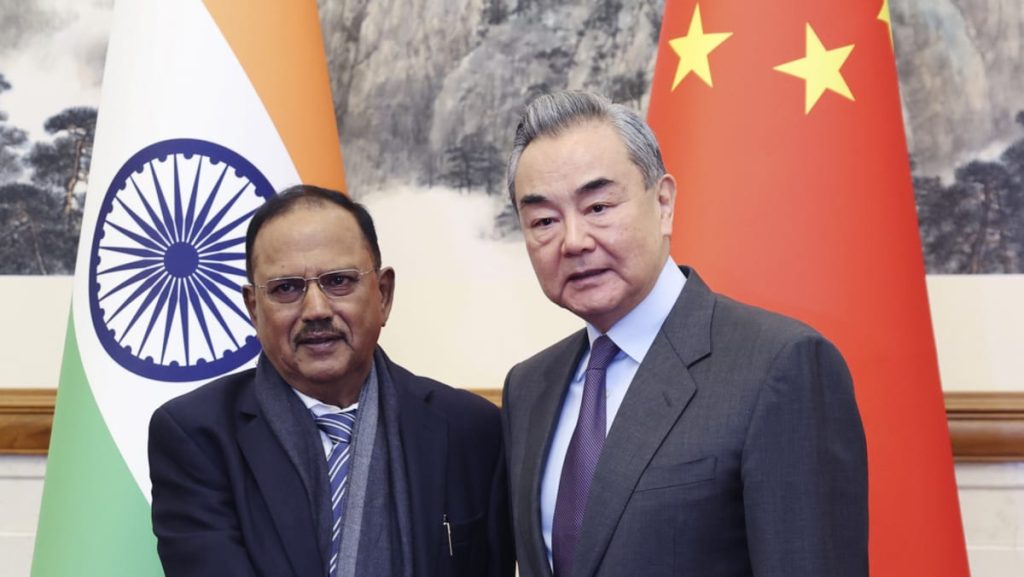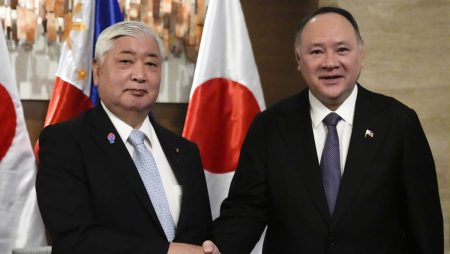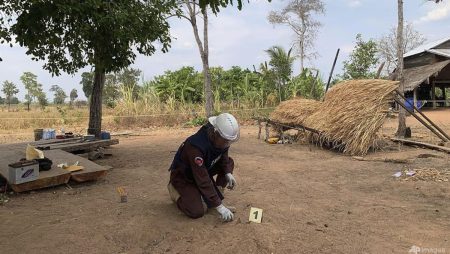The December 18, 2024 meeting between Indian National Security Advisor Ajit Doval and Chinese Foreign Minister Wang Yi in Beijing marked a significant, albeit cautious, step towards normalizing the strained relationship between the two Asian giants. This 23rd meeting of the Special Representatives, the first since December 2019, came after a prolonged period of tension and mistrust stemming from the deadly 2020 Galwan Valley clashes. The clashes shattered the fragile peace along the Line of Actual Control (LAC), leading to a military standoff, a breakdown in communication, and the erosion of painstakingly built confidence-building measures (CBMs). With the 75th anniversary of diplomatic relations between India and China approaching in 2025, the meeting signaled a renewed attempt to address the persistent border dispute and prevent further escalation.
While the meeting offered a glimmer of hope for improved relations, the underlying complexities and historical baggage of the India-China relationship remain significant hurdles. The long-standing border dispute, despite decades of discussions, continues to be a major point of contention. Its potential to derail diplomatic ties has been demonstrated repeatedly, and the Galwan clashes starkly exposed the fragility of existing CBMs. The October patrolling resolution along the LAC, which preceded the December meeting, did contribute to some easing of tensions and disengagement, creating a more conducive environment for dialogue. However, the path towards genuine normalization remains fraught with challenges.
The divergent narratives emerging from the meeting further underscore the delicate nature of the current rapprochement. China’s release of a “six-point consensus” after the meeting, a document not fully embraced by India, highlights the persistent differences in their perspectives. Furthermore, the absence of a joint statement following the meeting, despite Beijing’s declared eagerness to work towards a resolution, raises questions about the level of consensus achieved. China’s insistence on a solution that is “fair, reasonable and acceptable to both sides” and its commitment to maintaining peace and tranquility in the border areas, while seemingly positive, lack concrete details and leave room for interpretation.
Beijing’s call to “delink the border issue from bilateral relations,” a position it has advocated since the Galwan clashes, presents a significant challenge for India. India’s position has consistently linked the resolution of the border dispute to the overall health of the bilateral relationship. Delinking the two would allow China to pursue its economic and geopolitical interests with India while maintaining the status quo on the border, a scenario that India finds unacceptable. The asymmetry in power between the two countries further complicates matters, with China holding a significant economic and military advantage. This imbalance influences the dynamics of the relationship and necessitates a cautious approach from India.
The path forward requires sustained dialogue, transparency, and a genuine commitment from both sides to address the root causes of the tension. Building trust, shattered by the Galwan incident, will be a long and arduous process. Confidence-building measures must be strengthened and implemented effectively to prevent future escalations. Both sides need to exercise restraint and avoid actions that could inflame tensions. The upcoming anniversary of diplomatic relations in 2025 presents an opportunity to reset the relationship and chart a course towards a more stable and cooperative future.
Ultimately, the success of this renewed engagement will depend on the willingness of both India and China to acknowledge each other’s concerns, find common ground, and work towards a mutually acceptable resolution of the border dispute. The December 18 meeting, while a positive step, represents only the beginning of a long and complex process. The road to normalization remains challenging, and sustained efforts are required to overcome the deep-seated mistrust and build a relationship based on mutual respect and understanding. The international community, particularly regional powers, has a vested interest in a stable India-China relationship. Their support and encouragement for peaceful dialogue and conflict resolution can play a crucial role in fostering a more stable and prosperous Asian region.










